QUESTION: I am an Agent and I have been reading that in the near future homeowners may be falling behind in their mortgages; if that occurs, it could result in an increase in the number of foreclosures. I want to create a business plan to approach those homeowners and, for a fee, offer to assist them with delaying or stopping the foreclosure sale, getting a loan modification, or even helping them refinance. Some of those contacts could even turn into listings. My manager is concerned about me getting into that activity but cannot explain the risks. Is there really anything that I should be concerned about?
ANSWER: It is extremely dangerous for an Agent to engage in any activities that could constitute loan modification consulting. This is a separately-regulated area of real estate practice with severe penalties for failing to comply with any or all of the requirements.
Real estate licensees who assist homeowners in modifying their loans or helping homeowners to avoid foreclosure (apart from a related sale of that property) are subject to strict requirements once a Notice of Default has been recorded against the property.
- THE LAW: Agent activity for a homeowner whose residence is in foreclosure must comply with the Mortgage Foreclosure Consultant’s Act (“MFCA”).
The MFCA law generally applies when someone performs, or offers to perform, foreclosure-related services for compensation for a “residence in foreclosure” which is defined as follows:
– The owner occupies the property as a principal residence;
– The property is comprised of one to four family dwelling units; and
– There is an outstanding notice of default recorded against the property.
A “Foreclosure Consultant” is defined as “any person who makes any solicitation, representation, or offer to any owner to perform for compensation or who, for compensation, performs any service which the person in any manner represents will in any manner do any of the following” (this is a partial list of the most pertinent acts of a foreclosure consultant):
(1) Arranging or attempting to arrange for any delay or postponement of a foreclosure sale.
(2) Obtaining any forbearance from any beneficiary or mortgagee.
(3) Obtaining any waiver of an acceleration clause contained in any promissory note or contract secured by a deed of trust.
(4) Assisting the owner to obtain a loan or advance of funds.
(5) Avoiding or ameliorating the impairment of the owner’s credit resulting from the recording of a notice of default or the conduct of a foreclosure sale.
(6) Saving the owner’s residence from foreclosure.
(7) Providing debt, budget, or financial counseling of any type.
(8) Giving any advice or explanation on curing a default, reinstating an obligation, fully satisfying an obligation, postponing a trustee’s sale, or avoiding a trustee sale.
(9) Contacting creditors on the owner’s behalf.
Many of the services that you are proposing may fall into several of the above categories, which would then make you and your Brokerage “Foreclosure Consultants.”
2. OTHER REQUIREMENTS AND LIMITATIONS:
REGISTRATION: A Broker or Agent must not take any action as a Foreclosure Consultant unless the Broker has first registered with the California Department of Justice, is issued and maintains a certificate of registration and a surety bond in the amount of $100,000.
ADVANCE FEES: With limited exceptions, taking a fee in advance of completing a service for which a DRE license is required is illegal.
CONTRACTS: All agreements constituting Foreclosure Consulting activity must be in writing, have a cancellation clause and meet other technical requirements.
PENALTIES: A violation of the MFCA law can be deemed a crime that is punishable by one year in prison, plus a $25,000 fine for each violation. An owner may also file a lawsuit in court to recover actual damages, exemplary damages, reasonable attorneys’ fees and costs, and equitable relief.
For details, see, the CAR Legal Q&A on the subject and all of the requirements with which to comply at:
https://www.car.org/riskmanagement/qa/foreclosure-short-sale-folder/foreclosure-scams
PRACTICE TIPS:
- While technically a DRE licensee can work with clients to modify their loan terms, amounts, payments, etc., the Agent and his/her Broker must assure that ALL of the requirements of the Mortgage Foreclosure Consultant’s Act are followed ALL of the time.
- No Agent should engage in any Mortgage Foreclosure Consulting activities without the express, written agreement from their Broker.
- Before a Broker agrees to allow an Agent to engage in any Mortgage Foreclosure Consulting activity, it is essential that the Agent’s Manager be fully aware of all of the compliance requirements so that the Manager can closely monitor, manage and supervise that Agent’s activities in a manner that is more than what is generally required by the DRE for Broker Supervision purposes. Failure to fully comply can have severe consequences for all of the licensees involved and it is extremely unlikely that the Broker’s E&O Insurance will cover any resulting civil or criminal actions that arise from Mortgage Foreclosure Consulting activity.
WEEKLY PRACTICE TIP: DO NOT FORWARD TO CLIENTS. This Weekly Practice Tip is for the exclusive use of clients of Broker Risk Management and their Agents. It may not be reproduced or distributed without the express written consent of Broker Risk Management. The advice and recommendations contained herein are not necessarily indicative of standards of care in the industry, but rather are intended to suggest good risk management practices.
© Copyright Broker Risk Management 2020 05/15/20
